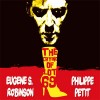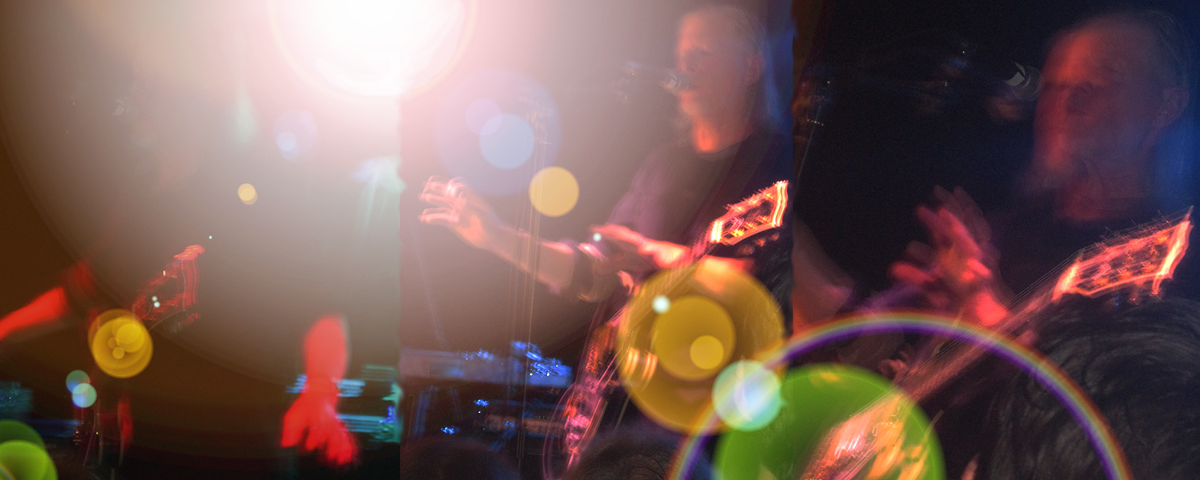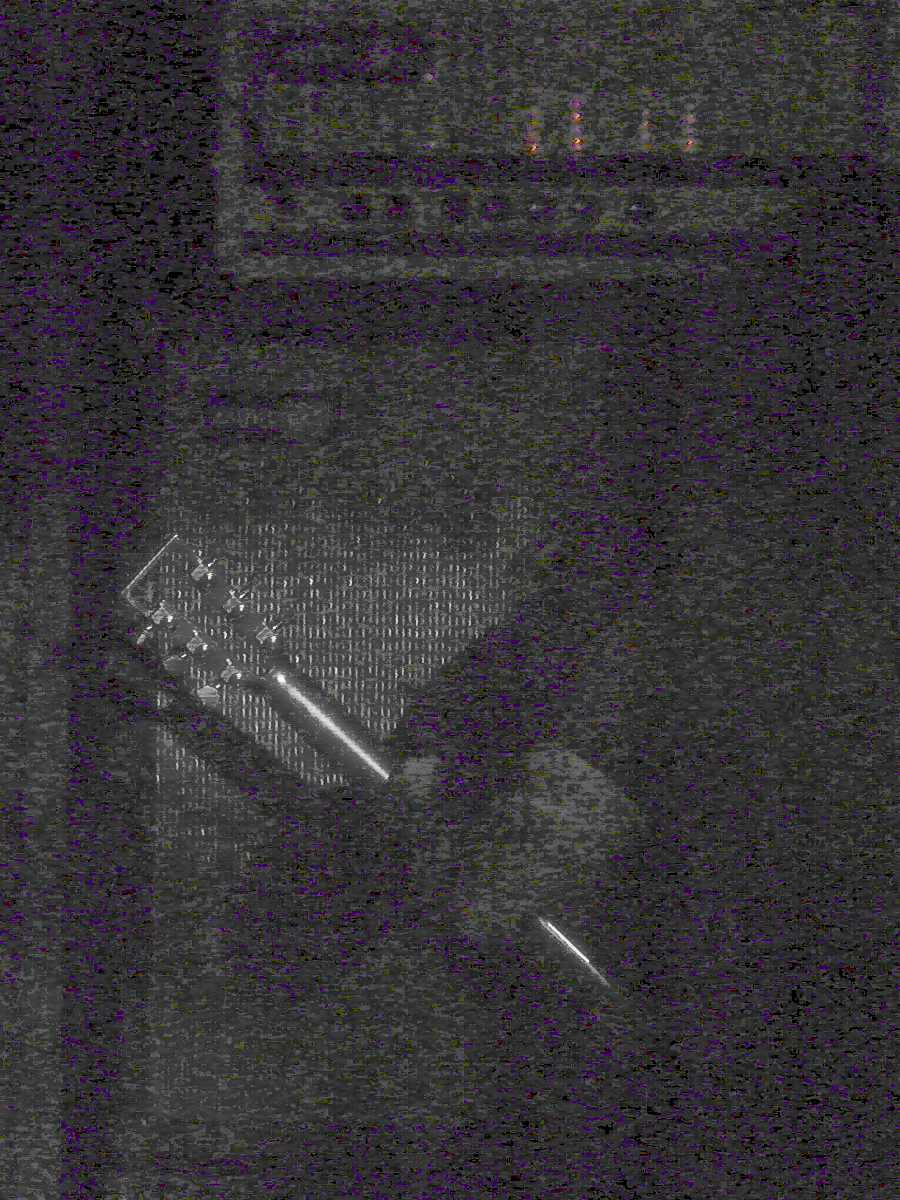Monotype
 The pairing of Eugene S Robinson‘s voice and Phillipe Petit‘s sound manipulations draws on the film noir rule of human nature red in tooth in claw as much as on Thomas Pynchon for this six-part tale of inhumanity and death (of which this is the first of a planned three instalments). Atmospheric and brooding, the conversational delivery of Robinson is laconic, with an underlying menace present throughout, while Petit’s processing splutters, flitters and drones in grim emotional counterpoint which complements the unfolding story perfectly. Add in Rhys Chatham‘s spluttering trumpet work and Helena Espvall‘s cello for extra shades of cinematic chiaroscuro, and the ominous pulp opera unfolds with an avant sense of dread and unease.
The pairing of Eugene S Robinson‘s voice and Phillipe Petit‘s sound manipulations draws on the film noir rule of human nature red in tooth in claw as much as on Thomas Pynchon for this six-part tale of inhumanity and death (of which this is the first of a planned three instalments). Atmospheric and brooding, the conversational delivery of Robinson is laconic, with an underlying menace present throughout, while Petit’s processing splutters, flitters and drones in grim emotional counterpoint which complements the unfolding story perfectly. Add in Rhys Chatham‘s spluttering trumpet work and Helena Espvall‘s cello for extra shades of cinematic chiaroscuro, and the ominous pulp opera unfolds with an avant sense of dread and unease.
Listening to Robinson’s discourse is an engaging process as he recounts in character
the internal dialogue of a bug-eating killer and his involvement with missing thousands of dollars. This is no book for bedtime, unless the dreams which follow are desired to be nightmares of violence and threat, soundtracked by a
Lynchian welter of diquiet and industrial
klang. An obvious reference point for
The Crying of Lot 69 is the visceral collaboration of writer
Derek Raymond with
James Johnston and
Terry Edwards where the former read his classic cult detective novel
I Was Dora Suarez while the two
Gallon Drunk members underlaid a similarly mordant soundtrack of encroaching sleazy horror to match the blood-soaked content of Raymond’s words. But
Oxbow frontman Robinson is no cultured English expatriate novelist, condemning the corrupt police of his homeland as much as the depraved killer of Suarez; instead, he comes in live and directly threatening, occasionally rising to anger as he tells just how the killings take place from the perspective of the perpetrator; though there are certainly enough similarities that those gripped by the sordid details of Raymond’s seedily nasty series of
Factory novels will recognize a similar story unfolding here.
As Robinson’s character gets deeper into his monologue, even his voice begins to decay to match the rambling discourse. As it does, Petit maintains a sliding ebb and flow which verges on occasion on crushing the words into the depths as
glitches and vaccuuming voids compete with emergent creaks and occasional rhythms slotted into place around the never-ending voice, reflecting the hypnotic decay – moral and sonic – of the disquisition of the hows, whys and wherefores of a murder. When
Hervé Vincenti‘s acoustic guitar signals the finale, the introduction of pleasant melody only serves to underline the grim drama and provide an instrumental full stop to part one.
-Richard Fontenoy-
Eugene S Robinson and Philippe Petit – The Crying of Lot 69
 The pairing of Eugene S Robinson‘s voice and Phillipe Petit‘s sound manipulations draws on the film noir rule of human nature red in tooth in claw as much as on Thomas Pynchon for this six-part tale of inhumanity and death (of which this is the first of a planned three instalments). Atmospheric and brooding, the conversational delivery of Robinson is laconic, with an underlying menace present throughout, while Petit’s processing splutters, flitters and drones in grim emotional counterpoint which complements the unfolding story perfectly. Add in Rhys Chatham‘s spluttering trumpet work and Helena Espvall‘s cello for extra shades of cinematic chiaroscuro, and the ominous pulp opera unfolds with an avant sense of dread and unease.
The pairing of Eugene S Robinson‘s voice and Phillipe Petit‘s sound manipulations draws on the film noir rule of human nature red in tooth in claw as much as on Thomas Pynchon for this six-part tale of inhumanity and death (of which this is the first of a planned three instalments). Atmospheric and brooding, the conversational delivery of Robinson is laconic, with an underlying menace present throughout, while Petit’s processing splutters, flitters and drones in grim emotional counterpoint which complements the unfolding story perfectly. Add in Rhys Chatham‘s spluttering trumpet work and Helena Espvall‘s cello for extra shades of cinematic chiaroscuro, and the ominous pulp opera unfolds with an avant sense of dread and unease.


